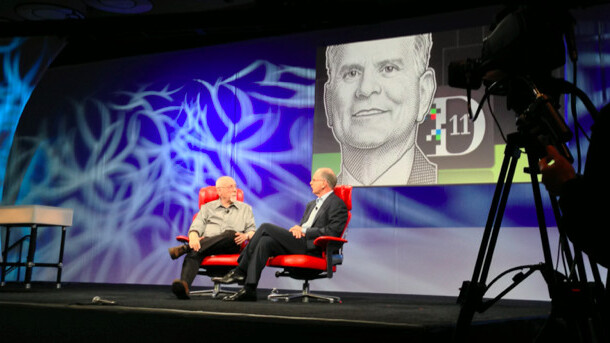
Nuance CEO Paul Ricci is speaking today at the All Things D conference on a variety of topics related to speech recognition and virtual assistants. One of the interesting tidbits he’s revealed is that Nuance does indeed power the voice portion of Apple’s Siri virtual assistant.
The relationship had been long assumed and hinted at, and is generally accepted to be true, but it’s never been officially confirmed by Nuance, which seemed to take a perverse pleasure in dancing around the relationship.
“We are the fundamental provider of voice recognition for Apple,” Ricci said, while noting that there were other areas that they did not participate in with regards to Siri like the artificial intelligence layers. Ricci says that the iPhone has both an embedded and cloud technology for voice recognition, but said that Siri is a cloud solution so most people are using remote services there.
Ricci also shared some views on where virtual assistants will be in two years, which is a place that he sees as much more useful and cross-platform.
“I think we’ll see virtual assistants that will be quite robust in the most common domains that you’d like to see on a smartphone.”
Naunce, of course, is working on its own cross-platform assistant called Project Wintermute, which we had a chance to get a hands-on look at during CES this year, and we found some aspects to be impressive:
After asking the phone to display the score of the Notre Dame game (and getting a response quickly, displayed visually much in the way that Siri does), we turned to a Dragon TV-enabled television.
“Put the game on,” the TV was asked. Note that there was no mention of which game, any team names or schedules at all. The TV instantly began playing the Notre Dame game, unprompted.
The information, of course, had been passed from the phone to Wintermute’s cloud. Then, when the assistant was invoked on another device, it used the information that it had gathered from the last query to infer that we wanted to watch, not just any game, but the game we had asked it the score of. It was quite impressive, frankly, and the implications were immediately evident.
Ricci acknowledged that the virtual assistant was just beginning its long journey towards true usefulness. “We’ve come so far. In areas like health care we can capture doctor’s notes and use them productively…but the real problem is creating a virtual assistant that can understand what the user wants and take action based on anticipating those needs.”
More to follow
Get the TNW newsletter
Get the most important tech news in your inbox each week.





